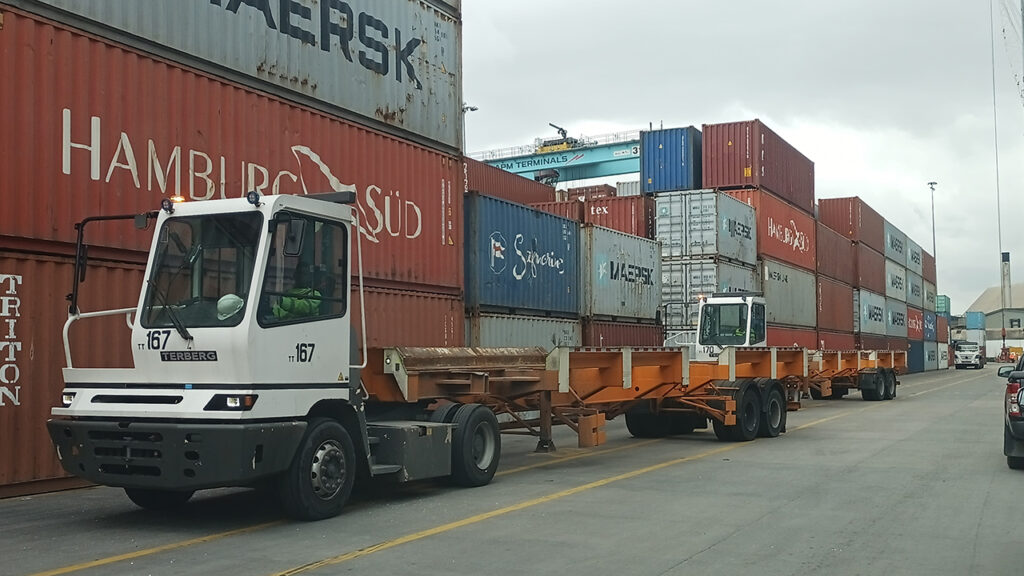
Hafsat Sahabi Dange is a corporate lawyer, business innovation and leadership expert with over a decade of experience working with the Corporate Affairs Commission (CAC). A social entrepreneur with a passion for Small and Medium Enterprises (SMEs), she is also the founder of the Association of Northern Women Entrepreneurs (ANWE). In this interview with TOBI AWODIPE, she talks about factors hindering the growth of small industries and export.
How are small industries in the north faring considering several issues like insecurity and diminished purchasing power?
INSECURITY affects all aspects of our lives, including economic undertakings both locally and nationwide. It affects entire business organisations or all other areas of its operations, including farming activities, production, marketing and access to finance, thereby foiling the progress that has been recorded in the past. Businesses are forced to suspend or reduce operations due to the risk being kidnapped or killed. This disruption has led to decreased productivity and output, hindering economic growth. In areas affected by conflict or crime, roadblocks, checkpoints, and corruption can impede the movement of goods and services, increasing transaction costs and limiting trade opportunities. But of course, since life must continue amidst these many challenges, industries are forced to invest in additional security measures, such as guards and local surveillance systems to protect their assets and ensure safety of employees. These extra costs can erode profit margins and make businesses less competitive in the global market. Those not buoyant enough to cater for these extra expenses are forced to close and as a result, employees are laid off with no means of livelihood, resulting in child labour, street hawking and gender-based violence, which generally exacerbates economic inequality and social unrest, further hampering economic development.
Many companies have left and are leaving Nigeria for neighbouring countries. What can the next administration do to stop this trend?
Governments ought to make investments in revamping their law enforcement organisations, such as the police, courts, and security forces by providing them with the tools, training and resources needed to effectively battle crime and uphold law and order. Increasing the capability of law enforcement aids in reducing criminal activity, capturing offenders and giving the public a sense of security. Also, community policing should be encouraged between local communities and law enforcement organisations because it fosters relationships, conversation and trust between the police and the general public. Also, community members can actively contribute to attempts to prevent crime by informing authorities of suspicious activity, sharing information, and collaborating with them to resolve security issues. By encouraging residents to take ownership and accountability, this strategy improves community safety and peace of mind for business owners and investors. Government should also give priority to programmes that promote inclusive economic growth, job creation, and poverty alleviation while increasing social mobility by enhancing access to healthcare, education, and other fundamental services. Government should also invest in upgrading border security measures, including the use of technology to efficiently monitor and regulate borders, such as surveillance systems and biometric identification because this can aid effective intelligence sharing among law enforcement and help in the detection and prevention of criminal activity, terrorism and other security issues.
How can cottage industries compete favourably with others?
It is important for such businesses to embrace continual learning and innovation, stay up-to-date with industry trends, invest in professional development, adopt new technologies, explore creative designs and improve production processes to enhance efficiency, quality and offer innovative products that stand out to compete favourably with larger companies and thrive in the market. Also, local communities and cottage industries usually have close bonds. They can interact with clients directly, get publicity and develop a name in their community by taking an active part in neighbourhood activities and markets. For its expansion and sustainability, community support and word-of-mouth referrals can be quite helpful. Cottage industries should embrace collaboration with bigger companies, partnerships and cooperation can help them become more visible and broaden their product offers.
By working together, they can share resources, reach a wider audience, and profit from coordinated marketing initiatives. Another benefit of cottage industries is that they frequently offer handcrafted or customised products. Customers that appreciate these features and are prepared to pay more for them might be attracted by stressing the quality, care, and craftsmanship of their offerings; therefore, they need to establish personal connections and provide exceptional customer service by interacting directly with customers, addressing their needs and offer personalised experiences. They can create loyal customers who are more likely to support and recommend their business.
Also, the Internet provides cottage industries with a level playing field to showcase their products and reach a global customer base. By establishing an online presence through a website or utilising e-commerce, they can expand their reach, attract customers beyond their local area, and compete with larger companies on a broader scale. Government and development partners must rise to the challenge of supporting these cottage industries to achieve this.
How would you advise the industries on building sustainable business models?
Sustainability is essential for cottage industries to thrive in the long term; they can achieve this by sourcing raw materials locally and supporting local suppliers and artisans. This reduces the cost associated with transport and supports the local economy. Cottage industries must also stay up-to-date with market trends, emerging technologies and changing customer preferences. They can continually innovate their products, processes, and business models to stay relevant in a rapidly evolving marketplace. A strong social media presence, social media marketing, digital advertising channels and intense marketing and branding to maintain visibility and competitiveness are also essential. Customer feedback can also provide valuable insights into refining products, enhancing services and adapting to changing needs. By combining sustainability with adaptability, innovation, and customer-centric strategies, cottage industries can not only remain relevant but also thrive in a competitive business landscape.
What steps are you taking to actively grow and support these industries in the region?
Through the activities of the Association of Northern Women Entrepreneurs (ANWE), we look to bridge the gap in gender inequality in the area of women’s economic empowerment through capacity building and training activities, mentoring, linkages to market and finance, networking and learning from other established entrepreneurs as well as seek collaboration with both local and international organisations. Through our cluster development initiative, we identify and support local business clusters through training on best practices, new products to suit emerging markets, modern equipment, renovation, and facelift of old facilities as well as business development for enhanced production and better incomes.
Pottery, among other things, is something the women at ANWE do. Do you have plans to grow this into exportable items?
We ensure that they manufacture products that appeal to the export market and conduct thorough market research to identify potential export markets. We also choose markets that align with the product’s unique selling points and have favourable export conditions, including product safety standards, labeling requirements, packaging regulations and environmental guidelines. Ensure that your products meet the necessary certifications and quality assurance processes, such as Standard Organisation of Nigeria (SON) certifications or compliance with specific industry standards. Also, develop a reliable and efficient supply chain to support your export operations. This includes sourcing high-quality raw materials, ensuring consistent production, managing inventory effectively, and establishing a robust distribution network. Maintain clear communication with suppliers and implement quality control measures throughout the production process.
How can government go beyond lip service to provide better support for Micro, Small and Medium Enterprises (MSMEs)?
A simplifying regulatory requirement, streamline and simplify business regulations, licenses, and permits to reduce bureaucratic hurdles. Implement transparent and efficient processes for business registration, tax compliance, and licensing, making it easier for small businesses to start and operate. Also, promote financial literacy programmes to educate them on financial management and investment strategies, and make business incubators, entrepreneurship centres, and startup support programmes accessible to everyone. Most of all, invest in infrastructure development, including power, transport, logistics, and communication networks, to improve connectivity and reduce the cost of doing business. This can include upgrading road networks, expanding access to reliable electricity, enhancing Internet connectivity and improving trade facilitation at ports and borders.
Is the African Continental Free Trade Area (AfCFTA) something you think would be beneficial to you in the immediate future?
If implemented well, it will increase export opportunities for small businesses. With reduced trade barriers, MSMEs can more easily export products or services to other African countries, opening new opportunities for small businesses to grow and diversify revenue streams. They can tap into previously inaccessible markets and benefit from the increased demand for their offerings. MSMEs can take advantage of these opportunities to forge new partnerships, explore collaborations, and share experiences with other entrepreneurs from different countries. Such networking can lead to knowledge exchange, joint ventures, and increased business opportunities, which is something that every business needs.
What would you say are some of the factors hindering industrial growth in Nigeria today?
Non-existent or poor infrastructure particularly power, poor transportation networks and telecommunications all reduce operational effectiveness and drive up expenses for enterprises. Corruption and bureaucratic inefficiency also impede industry growth. Red tape, embezzlement, insecurity among others are deterring investments and hampering innovation.
SMEs are the engine room of any economy with the power to lift many people out of poverty; yet accessing credit facilities remains a problem. How could this be addressed?
Creating specialised SME lending institutions or funds that are solely focused on SME financing can assist in bridging this gap. These institutions may be more willing to extend loans if they have a better grasp of the special requirements and risks involved with SMEs. Programmes for financial literacy and capacity building are needed since many SMEs struggle to portray their companies as credible investment options and to prepare loan applications. Providing training in financial literacy and capacity-building initiatives will help. Through business networks, entrepreneurial associations, and industry events, connecting SMEs, financial institutions and other stakeholders can open possibilities for information exchange, teamwork, and prospective finance partnerships.
What quick wins can the incoming administration score to support the growth and survival of local industries?
It is crucial to remember that enhancing SMEs’ and local industries’ sustainable growth is a challenging endeavour that calls for collaboration from numerous parties. To ensure their efficacy and address new difficulties, policies and initiatives must be continuously monitored, evaluated, and modified to suit the peculiarities of all geopolitical zones of Nigeria. More so, government must ensure that a policy like a startup act that was recently passed is effectively implemented to foster an enabling environment for entrepreneurship and support the growth of start-ups and small businesses. Establishing procedures for monitoring and evaluating the Start-up Act’s implementation and effects will help determine how effective policies and programmes are regularly, get input from stakeholders, and make the necessary corrections to improve results.












